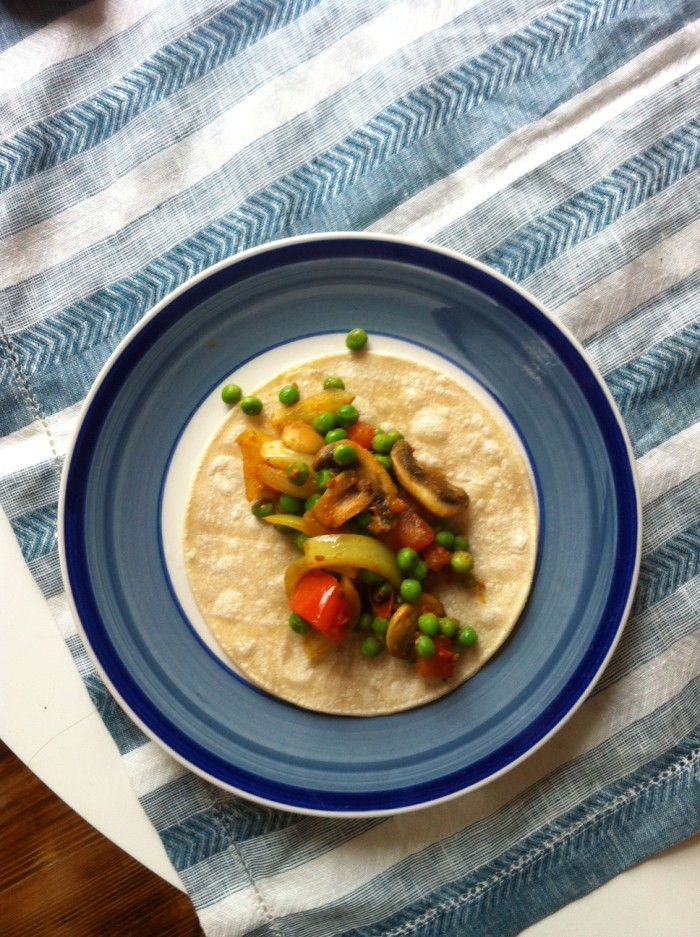If someone had told me when I was a teenager that one day I might lose my appetite for some reason, I would’ve been both incredulous and excited. From birth I had a really healthy appetite, which only increased in adolescence. I could feel stuffed going to bed, and wake up feeling ravenous the next day. This was long before becoming vegan, and I distinctly remember eating several large slices of pizza for dinner–and not even feeling that full. Looking back, it was only a natural part of a growth spurt, but I wanted to have a more “attractive” level of appetite, and so discretely researched natural appetite suppressants online. But I never grew to like cayenne peppers that much and most of all, they don’t really make you not hungry. (Surprise surprise).
After I grew out of that phase though, I found that my hunger levels on a normal, daily basis went down, but that stress kicked it up without fail. Whenever I was super-stressed due to an exam, hormonal changes, or boy problems, I craved comforting foods without physically feeling very hungry.
At some point in my twenties, however (and this is where I’m now), I started experiencing the opposite: extreme stress actually leading to complete loss of appetite. Now, I don’t experience that “medium” level stage of stress-related hunger spike, and go straight to this ‘I don’t even want to look at food right now’ stage. And contrary to what my Hungry Hippo teen self might have thought, it’s not “convenient” or glamorous, which makes sense considering what really causes this. When you’re under extreme duress, your hypothalamus produces a hormone that temporarily suppresses appetite, while your adrenal glands pump out adrenaline, which triggers fight-or-flight response, leading to that ‘food is the last thing on my mind right now’ feeling. But more chronic stress stimulates cortisol production, which increases both appetite and your motivation–including the motivation to eat.
For instance, I didn’t even register how stressed I was today, until I looked around and it was late in the afternoon; and though I’d eaten just a small breakfast, I had zero desire to eat anything. I was working on the couch and my laptop battery was almost out, so I just closed it and tried to ask why, at 3 p.m, I didn’t want to eat or continue working. I had a performance to go to right around dinner time, so I could’ve easily skipped both lunch and dinner. But instead of going with the physical signals of un-hunger, I chose to go with my head and forced myself to make something healthy. After the smallest amount of prep, I made myself some Indian-inspired tacos, and after eating a few bites, I didn’t feel so apathetic anymore. It lifted my spirits and gave me clarity to eat the food that I’d prepared for myself. And after I finished, I suddenly saw that my laptop was plugged to its adapter at my desk–somehow without even realizing, I’d placed it there while I was cooking, and now it was ready and waiting for me.
Obviously your appetite has a lot to do with stress, but you’re not powerless against it. I’m definitely a proponent of intuitive eating and sometimes even practice intermittent fasting, but there is a big difference between being satiated because you’re physically and emotionally well-nourished, and over-desiring/not desiring food because you’re stretched thin. The key is to know the difference, and actually cue your body to come back to its comfortable levels, which helps stabilize your mood as well. Here’s how to cope with appetite changes caused by stress.
Check if your hunger levels are different from normal.
You usually start to get hungry at noon, but today you’re starving at 9:30 a.m. even though you had breakfast. Or conversely, you’re not hungry hours after your normal lunch hour.
Take slow deep breaths and tune into your body.
The mindful part will be essential: instead of going straight to the break room, take 5 deep, slow breaths right at your desk. Tune into how you’re actually feeling–it might really be hunger or satiety, or it might be stress, anger, loneliness, anxiety, disappointment, etc. Separate the emotions from your physical needs so you can deal with them directly instead of through food.
Nourish yourself with healthy food.
By eating ‘normally’ and giving your body proper nourishment, you set up your brain to feel calmer and happier, as well. Think of it as going to yoga class–you go in stressed and perhaps not craving it, but once you start it helps you feel better. Anything that is lovingly prepared (by a family member or by you) is going to be the best, and fresh vegan food with plenty of produce is always good.
In particular, include omega-3 (chia seeds, flax seeds, and walnuts), and tryptophan, which triggers serotonin-production (spirulina is a tryptophan superstar, and spinach, watercress, soy, and sesame seeds are also great). From personal experience I find that nuts help stabilize my mood–which might be due to their high mineral content including nervous-system-friendly magnesium and zinc (try almonds, cashews, Brazil nuts, etc).
Craving high-fat or high-sugar foods is a common symptom of stress. Try bananas (tryptophan! good natural carbs!), dates, and fresh berries. For the other savory craving, try healthy fats like avocado or hummus.
A Banana-based Ginger and Green Tea Ice Cream with Chocolate Chips? Sounds like a stress-buster!
Be gentle with yourself.
“Oh! That gentleness! How far more potent is it than force!” –Charlotte Bronte, Jane Eyre*
The fact that your body is reacting in a strange way to something as important and fundamental as food means that you’re going through a lot–more than you consciously realize / process. Instead of reacting with impatience to being over-hungry or completely apathetic, imagine if your best friend was going through the same issue–chances are you’ll relate to the fact that she’s so stressed, and wish to calm her. You could just shush your inner self with a big vegan chocolate chip cookie–or you could listen to yourself (while still having that cookie).
What happens when you get stressed? Do you get super hungry or super uninterested in food? And what do you like to eat to get back to your happy place?
Get more like this–sign up for our newsletter for exclusive inspirational content!
Also see: 25 Best Stress-Busting Foods
- *Yep, this is a newsletter-turned-article. 🙂
__
Photo: Peaceful Dumpling






